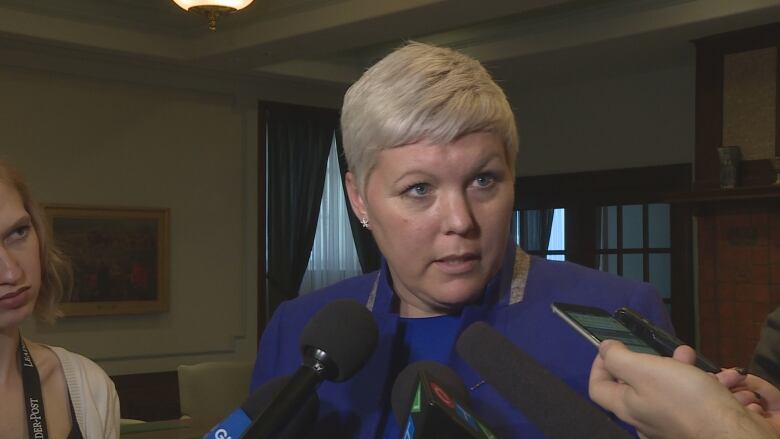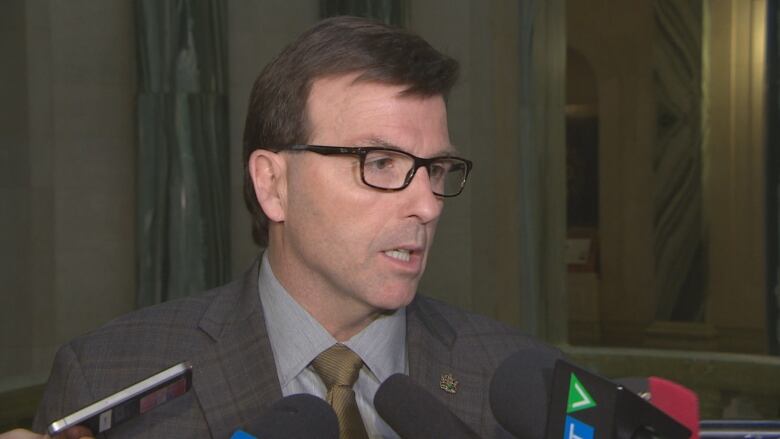Child and youth advocate calls for better access to mental health care in remote communities
Corey O'Soup suggests mental health resources be moved into schools

Saskatchewan's child and youth advocate is calling on the province to address a number of recommendations he says are "integral to a renewal of the child welfare system."
In his 2016 annual report tabled Tuesday in the Legislative Assembly, Corey O'Soup says long-standing systemic issues that remain unaddressed include:
- Barriers to mental health services in rural and remote regions
- Persistent issues in youth custody
- Lack of supports in many schools, particularly on-reserve schools
- Disparity between on-reserve and off-reserve funding for child welfare and education
Report calls out 'inaction on child welfare'
In the report, O'Soup acknowledges the government's commitment in 2011 to making significant changes to the Child and Family Services Act, but expresses dissatisfaction with delays in making "critical" changes, such as enhancing prevention and early intervention supports, increasing the definition of a "child" to age 18, and supporting youth as they transition to adulthood.
The report says 4,946 Saskatchewan children were in out-of-home care in 2016, up from 4,715 in 2015.
To make an impact on the child-welfare system, the report says, the province needs to address factors like poverty, to reduce the number of children entering care.
"We understand that the province faces some fiscal challenges, but inaction on child welfare brings a substantial price for vulnerable children, their families and communities," the report says.
There were 21 deaths of children in care in 2016, four of them by suicide. There were also 12 suicide attempts by children in care.

TinaBeaudry-Mellor, minister of social services, said all of the changes recommended by the Child Welfare Review Panel have been made to the Adoption Act, along with some of the changes recommended for the Child and Family Services Act. But she said there are still some changes pending.
"Those are not off the table;they are just pieces that require much more in-depth research on our part because they will affect other ministries," she said.
"They are definitely still a priority for me and for the ministry. They just are going to take a little bit longer to evolve and we wanted to take a phased-in approach."
Northern communities need help
"Insufficient services are evident in our northern communities where our youth have been at the centre of some of the biggest tragedies in our province's history," the report says, referencing the La Loche school shooting and La Ronge suicide crisis.
The report says barriers to accessing mental health services due to geographic location are a violation of children's rights and have a significant cost to children, families and the province.
Advocate wants more front-lines role
The advocate for children and youth, an independent officer of the Legislative Assembly, works on behalf of the province's young people. O'Soup took over the position from Bob Pringle in November 2016.
O'Soup, who is the first Indigenous person to be appointed child advocate, said he intends to steer the office toward a more active, "solutions-based" role.
"I think our office needs to be an office that is on the ground, that is on the front lines working with ourpartners and our stakeholders, ensuring that the work gets done and not just a voice that points out problems."
He said his top two priorities are to reduce the number of First Nations and Mtis children and youth in care, and ensure the education system meets the needs of First Nations and Mtis children and youth and their families.
He said education is key to breaking cycles of trauma and abuse and "will reduce the number of children and youth in care. It will reduce the number of children and youth dying and being critically injured in care."
Mental health support in schools
Ensuring children and youth have access to adequate mental health services and empowering youth are O'Soup's third and fourth priorities.
What matters to me is that we can fill these gaps that the children's advocate has identified and serve these children in a better way.- GregOttenbreit, minister of ruraland remote health
O'Soup suggests includingmental health supports in every school, so they are more accessible to students.In some cases, that would involve simply moving existing services into the schools.
Greg Ottenbreit, minister of rural and remote health,said he had already spoken to Education Minister Don Morgan about the suggestion, adding "It only makes sense."

"You're talking about people that are likely in the community already, that have an office there, so whether they're in a government office or a school doesn't matter to me," he said.
"What matters to me is that we can fill these gaps that the children's advocate has identified and serve these children in a better way."
Ottenbreit said he'dbe open to doing it as quickly as the government could move on it.
With files from Micki Cowan












_(720p).jpg)


 OFFICIAL HD MUSIC VIDEO.jpg)
.jpg)



























































































